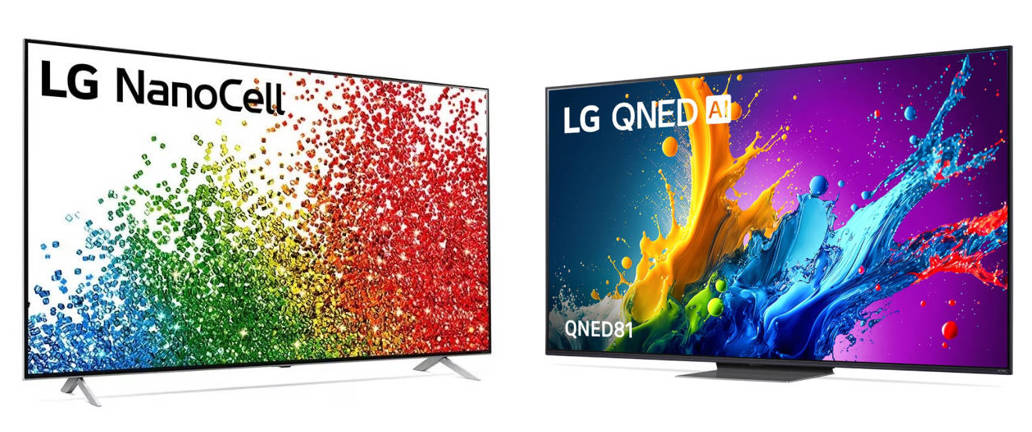
In response to the rapidly evolving TV market, LG has introduced two innovative display technologies: NanoCell and QNED. Each offers distinct advantages aimed at enhancing the viewing experience.
NanoCell
LG's NanoCell technology utilizes nanoparticles to filter and refine colors by absorbing unwanted light wavelengths, resulting in purer, more accurate colors and improved viewing angles. This technology reproduces lifelike deep colors and sharper tones, bringing the picture quality closer to OLED levels. Compared to costly OLED TVs, the NanoCell TV offers a fairer price while maintaining vivid colors and wide screen angles.
QNED
QNED, which stands for Quantum Nano-Emitting Diode, represents LG's advancement in LCD TV technology, combining Quantum Dot and NanoCell technologies with Mini LED backlighting. This integration delivers superior brightness and contrast, with improved black levels and reduced blooming effects. QNED TVs offer enhanced color accuracy and deeper blacks, providing a more immersive viewing experience.
Comparison with OLED TVs
While NanoCell and QNED technologies enhance LCD displays, they differ significantly from OLED technology—now considered the optimal in TV technologies. OLED TVs use self-emissive pixels, allowing for perfect black levels, unmatched contrast, and ultra-thin designs. In contrast, NanoCell and QNED rely on backlighting systems. Despite improvements, the two technologies still fall short of OLED in terms of lighting precision. However, QNED narrows the gap with its Mini LED backlighting, offering deeper blacks and higher brightness than NanoCell. OLED TVs, although superior in visual performance, are generally more expensive, making NanoCell and QNED TVs suitable options for budget-conscious consumers who are looking for a TV with satisfying picture quality.
Broader Impacts on Other Industries
Beyond better visuals, these technologies could benefit gaming and virtual reality, offering improved resolutions and sharper graphics for more immersive experiences.
Environmental Challenges
Despite advancements, higher brightness and resolution increase energy consumption, raising concerns about environmental sustainability. To solve this issue, LG has made strides in incorporating sustainable materials into its television designs. For example, the back covers of its OLED evo models, QNED TVs, and NanoCell TVs released in 2023 are constructed with recycled plastic, comprising more than 30% of used plastic.
Which Will Rule the Future?
The debate remains unresolved. NanoCell is a practical choice for those prioritizing color accuracy on a limited budget. On the other hand, QNED, with its promise of higher contrast and brightness, is poised to become a mainstream TV technology in the near future.
In conclusion, NanoCell delivers affordable color accuracy, while QNED offers better contrast and deeper blacks for a premium experience, though at a higher cost. Choosing between them depends on budget, sustainability goals, and long-term reliability.
TrendForce 2025 Mini LED Backlight Display Trend and OLED Technology Competition Analysis
Release Date:
PDF (194 Pages)- 28 August 2024
Languages: Traditional Chinese / English
|
If you would like to know more details , please contact:
|





 CN
TW
EN
CN
TW
EN






